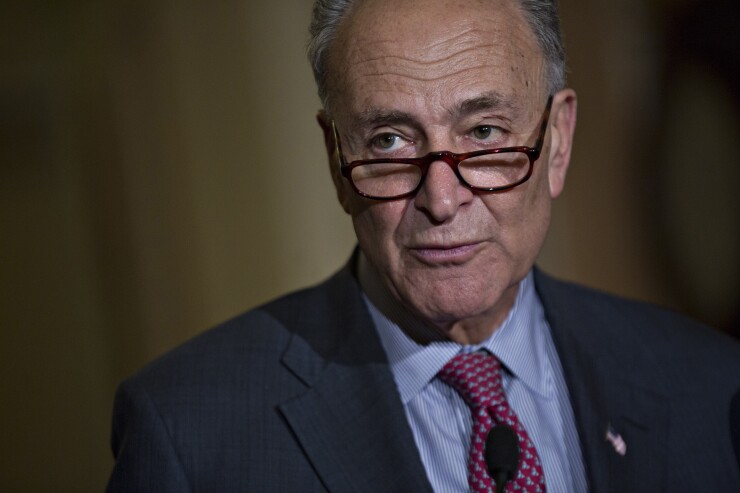WASHINGTON — The U.S. Senate passed a sweeping legislative package on Sunday that could supercharge the federal government's efforts to finance the societal transition to cleaner energy and deliver long-sought tax reforms targeting large businesses.
The Inflation Reduction Act of 2022 was passed in a party-line vote of 51-50 on Sunday using the budget reconciliation process, which is exempt from the Senate's 60-vote-threshold filibuster. Democratic senators were joined by Vice President Kamala Harris's tiebreaking vote to advance the package which now moves to the House, where Democrats hold a thin majority.
If passed by the House, the Inflation Reduction Act would represent the U.S. government's largest single investment in improving the nation's climate preparedness — a total of $369 billion in tax incentives and subsidies to push consumers and energy companies alike toward cleaner forms of energy.

The bill also contains significant tax reforms that would target some of the country's largest businesses, including some banks. A new minimum tax of 15% would target corporate profits for firms reporting more than $1 billion in annual income, for instance.
The bill would also deliver a roughly $80 billion increase to the budget of the Internal Revenue Service, an investment sought by the Biden administration since early 2021. The bolstered budget secured by the Senate this month passed without a related provision that was
The Inflation Reduction Act would introduce another progressive priority in tax policy: a 1% stock buyback tax. Jaret Seiberg, a managing director at the Cowen Washington Research Group, said in a research note Monday that the buyback tax could represent a long-term risk for banks, particularly if the tax is increased above 1% in coming years.
"This is an issue for publicly traded banks as regulators prefer buybacks to dividend increases," Seiberg wrote, "as they believe the market is more accepting of banks slashing buybacks than they are of banks cutting dividends. As such, we see this provision as contributing to systemic risk."
Senate Banking Chair Sherrod Brown of Ohio applauded the passage of a stock buyback tax provision in a press release Sunday afternoon, noting that he had introduced the
In the press release, Brown said that the Inflation Reduction Act marked "an historic step to fight inflation, lower costs, and create jobs that corporations can't ship overseas," adding that Democrats were "taking on Wall Street to rein in stock buybacks that reward CEOs at the expense of workers."
Less than a month ago, few in Washington expected the deeply divided Democratic Party to advance such historic legislation, even through the 51-vote-threshold budget reconciliation process. Key centrists within the party — particularly Sen. Joe Manchin of West Virginia — had expressed concern that new government spending would exacerbate already high rates of inflation.
The package is expected to pass through the House of Representatives by the end of the week and could be signed by President Biden just days after. Isaac Boltansky, a managing partner at BTIG, wrote before passage of the Inflation Reduction Act on Sunday that "we firmly believe that the House will clear whatever package the Senate sends over on a party-line vote."






